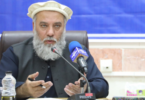Zahra Rashidi
Migration is a common occurrence that often results from poverty and insecurity, impacting people in different countries. Afghanistan, a country plagued by prolonged conflicts, ranks third globally in terms of refugee numbers. Over the past two years, Afghan migration has significantly risen. This report shares the story of a girl who abandoned her job, education, and university in pursuit of a better life, leaving Afghanistan behind.
Sadaf, who is 22 years old, left Afghanistan like thousands of others, six months after the return of the Taliban in Afghanistan and the tightening of restrictions on women’s employment and education. Sadaf was a seventh-semester journalism student and worked as a reporter for a media outlet when the Taliban regime took control. As a reporter, she closely monitored the restrictions on women. Sadaf was born in Samangan province and completed her primary education there as well. After gaining admission to Kabul University’s journalism faculty, she spent three years of her university period not in a dormitory but in the house of one of her relatives. She also worked as a reporter for a private media outlet alongside her studies to support her family financially.
She said, “Despite having more responsibilities in my family, I also had the highest score in the journalism faculty.” While taking care of her elderly parents and being part of a twelve-member family, Sadaf entered Pakistan illegally following the return of the Taliban regime and the illegal ban on the education and employment of girls.
She hoped to be safe there and have her immigration case pursued in host countries. However, she says that migration is unpredictable, especially when difficulties arise.
Lack of knowledge of the Urdu language, lack of housing, excessive rent for homes, experiencing life in a foreign country, and loneliness were some of the initial challenges that introduced Sadaf to the deeper layers of migration. However, this was just the beginning of the journey. Although migration is usually not a choice but a necessity, Sadaf, after finding a job in a packing workshop for clothes and textiles, was able to send some of her earnings back to her family in Samangan for the first time since her migration. She began to find some satisfaction in her life in migration.
Sadaf says, “I was living in Pakistan, completely satisfied with my job and earnings, until I heard in September 2023 that Pakistan was planning to deport illegal migrants.”
The process of forced deportation added to the difficulties of Sadaf’s life in Pakistan, and she faced daily fear on her way from home to work, making her way to the workshop herself. Sadef recalls the behaviour of her coworkers at her workplace: “While I was the only Afghan working in the clothing workshop, Pakistani citizens repeatedly tried to expose me to the Pakistani police.”
She tells the story of an evening when she was returning home tired, and suddenly, in such conditions, she encountered this: “I was in a car, and I was just a few minutes away from home when suddenly the Pakistani police got into the car and asked the driver if there were Afghan passengers in this car.” Sadaf says, “I had a full veil on, and no trace of my face was visible until the danger passed, and I could relax.” This is the paradox of life in migration: while fleeing from the constraints and limitations of Afghanistan, in Pakistan, she enforces all these restrictions on herself to stay safe.
Sadaf says that when the Pakistani police left and she got out of the car to go home, she faced a very painful scene: “I was on foot, and I was just a few steps away from home, but suddenly the Pakistani police locked my house and sent me a message to leave Pakistan as soon as possible.”
She was still waiting to see what would happen to her immigration case, but at that time, she had to work, and occasionally, she faced extremely unusual circumstances: “When I saw the door of my room locked, I thought to myself that I had lost my job, I had lost the university, and today, I was expelled from here, and I had to start life again from scratch.”
Finally, on a sunny morning, Sadaf headed for the Spin Boldak border with a suitcase containing all her belongings, wanting to return to her family in Samangan.
Sadaf described crossing the border between Pakistan and Afghanistan as a tragedy. According to her, “We moved with eight thousand migrants from Pakistan towards the border. The Pakistani police treated Afghan migrants very harshly.”
While recounting with her own eyes, she said to the reporter, “The Pakistani police ruthlessly beat women and elderly people, showing no mercy towards Afghans. They even insult Afghans with derogatory and offensive names, calling them terrorists. It was the most humiliating feeling I ever experienced in my life.”







